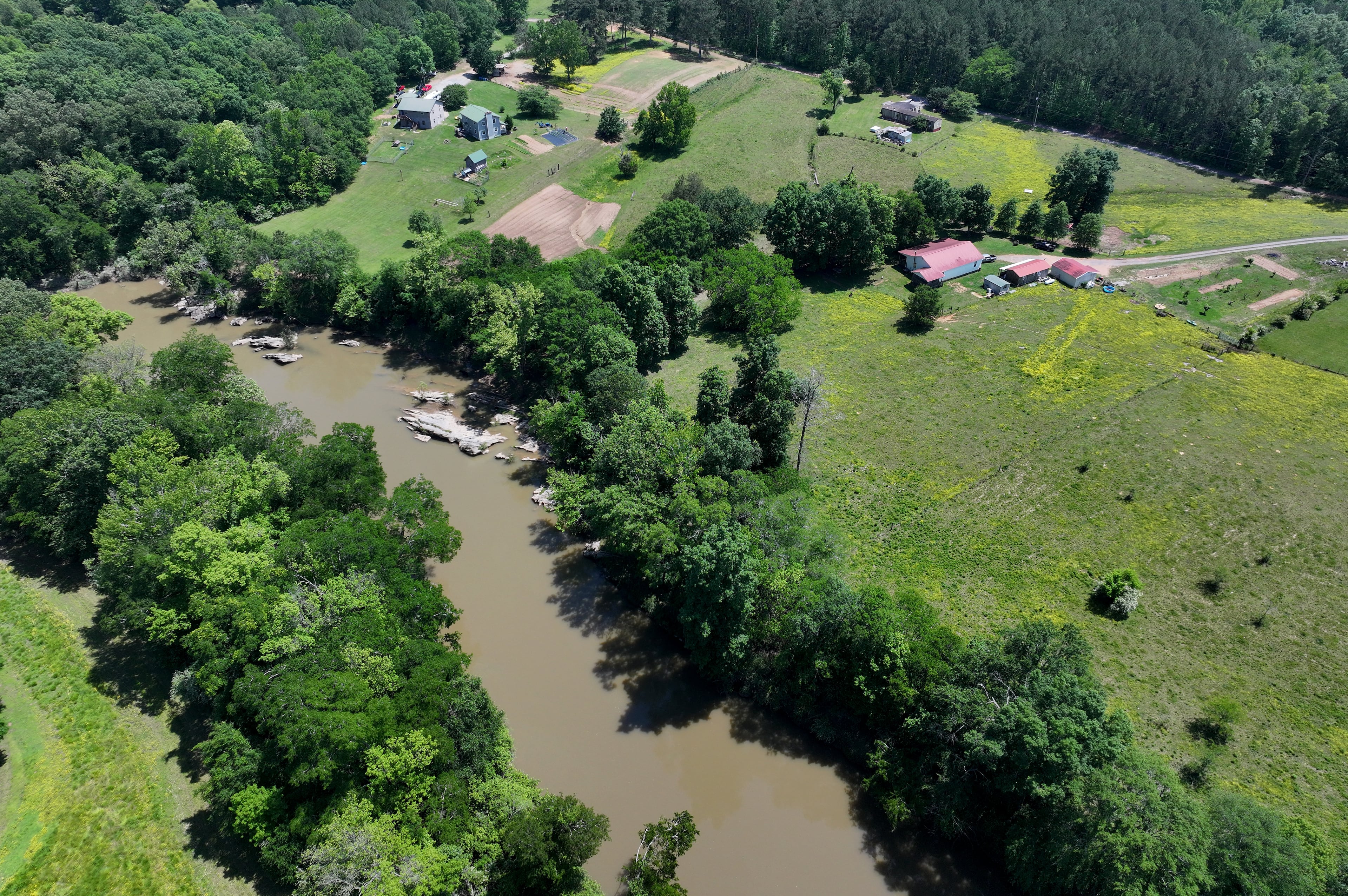A metro Atlanta film studio is on the market, looking for partners

BlueStar Studios, a metro Atlanta filming campus on the site of the former Fort Gillem, is marketing itself for sale in a bid to either find fresh investors or new ownership amid a slow period of production in Georgia.
The campus, which includes six buildings, was listed on commercial property marketplace LoopNet in late August.
After about a year of construction, BlueStar opened last September on 53 acres of the sprawling former Army depot about 7 miles south of Hartsfield-Jackson International Airport. Two soundstages were built, the first out of 18 originally planned for the campus, and extensive renovations were completed to historic properties on the site.
BlueStar was different from other developments at Fort Gillem, which closed in 2011 as part of a national realignment of military posts as the government shed excess infrastructure. In the years following its closure, much of the 1,500-acre Army depot turned into a private sector logistics hub. Big names like Amazon and Kroger opened huge distribution centers there.
But logistics companies were hesitant to take on the swath of land BlueStar now owns, because it contains several properties that can’t be torn down due to their historic designation, including a stately three-story headquarters building and brick structures that previously housed woodworkers, metalworkers and a motor pool. But BlueStar embraced them, and made them the centerpiece of a project that would, once completed, include 18 soundstages.
There’s precedent for preserving and finding uses for old Army buildings for film and television production. Tyler Perry bought much of the shuttered Fort McPherson in Atlanta, including Officers Row and other historic parts of the post, and uses them in his projects.

BlueStar has only developed a fraction of its planned campus. Now, owners are looking to find an equity investor or a new owner-user as it considers the next way forward.
The goal: to determine the types of partners in the marketplace that can help BlueStar “achieve our goals and maximize the remaining undeveloped assets that we have in any way possible,” said Mark Parkman, the chief operating officer of BlueStar.
These undeveloped assets include about 30 acres of land, along with the three-story, 108,000-square-foot headquarters building.
Dampened production
The company’s decision to market the campus comes amid a slow period for film and TV production, not only in Georgia but across the country.
After several years of focusing their efforts on boosting their content libraries as people were stuck at home during the coronavirus pandemic and craved things to watch, some studios and streamers are turning their attention back toward driving profit and saving costs.
For some companies, cost savings mean peeling back production altogether. Georgia has been an epicenter for Marvel Studios superhero-based projects. But parent company Disney is reducing its Marvel output to two to three films and two series per year. For other studios, savings takes the shape of moving production overseas, where incentives are just as, if not more, competitive than those in Georgia and other states and labor can be cheaper.
Plus, there is still a backlog of productions that built up because of last year’s dual Hollywood labor strikes, which brought content production and development to a standstill for months.
These factors, among others, have dampened the production of scripted content across the country. The slowdown has not spelled good news for the crew members, actors and vendors that rely on the industry for their livelihoods. But it’s also impacted the filming campuses like BlueStar, which rent their space to Hollywood studios and have stages to fill.
In Georgia, production isn’t at a standstill. But the number of active projects filming now is a fraction of the pipeline from pre-strike levels. This month, the Georgia film office, which tracks TV shows and movie shooting in Georgia, said there are just 25 active productions in the state, the slowest pace since last November, when the industry was still struggling from the writers and actors strikes. In September 2021, there were 45 active productions in the state. In September 2022, there were 49.
And now, the state has more stages to fill. Since 2020, developers have doubled the amount of available soundstage space, and five new studio campuses have opened over the past year and a half.
Pendulum swinging back
Times of change create opportunities.
BlueStar opened during the final months of the writers and actors strikes last year. Since the strikes’ resolution in November, several projects have filmed at the studio, including the upcoming Peacock series “Fight Night,” reshoots for a Netflix feature titled “Uglies” and various commercials.
BlueStar isn’t writing off adding more stages in the future. It is going where the market goes.
“If the market says, ‘Build more stages,’ you know, we’re going to build more stages. We can shapeshift to what the market wants us to do,” said BlueStar CEO Rich Goldberg.

It will likely take time for any structures to come to BlueStar’s land because interest rates are still elevated. Higher interest rates make any type of ground-up construction more expensive to begin, from offices to soundstages, and difficult to finance.
The headquarters building itself will be a massive undertaking. It’s an imposing structure that sits at the entrance of the campus, and has no air conditioning, electricity or plumbing. Paint is peeling off the walls, wiring hangs from the ceiling and holes in the floor reveal light poking through. But it’s beautiful — a building with real, genuine character, one developers couldn’t replicate with today’s building materials, budgets or expertise.
There’s hope that industry activity will pick up this fall, and Goldberg says he’s fired up after the Teamsters ratified their contract in August, which was the final holdout in the major Hollywood union negotiations this year.
“The pendulum is going to swing back,” Goldberg said. “It may not be to where it was, but it’s going to swing back. Because ultimately, that’s what (studios and streamers) do. They make great content.”



